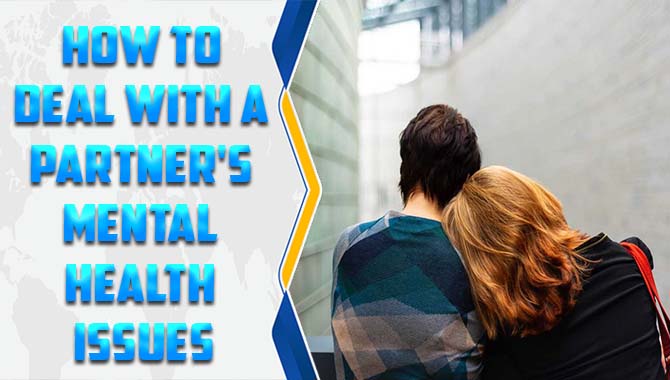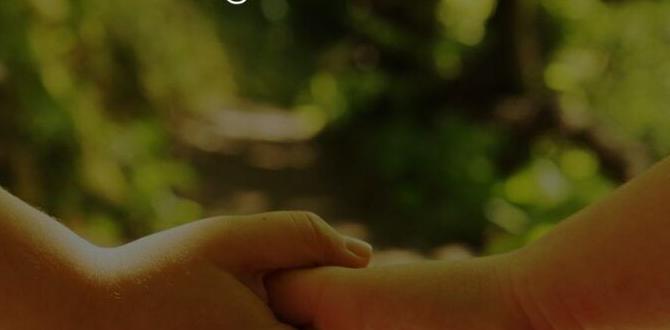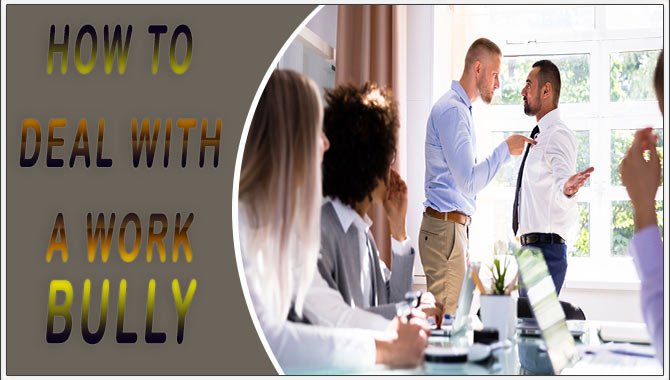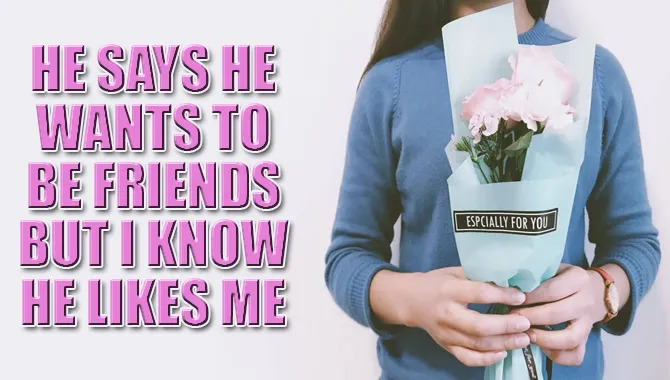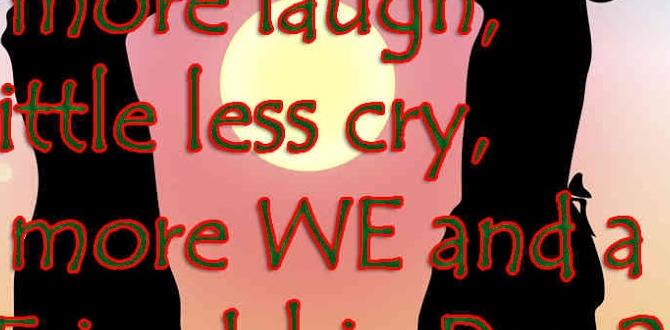Best first date ideas problems rarely ruin early connections. With this guide, you’ll navigate common pitfalls and find effective solutions, ensuring your first dates are smooth, enjoyable, and lead to more meaningful conversations and potential relationships.
Navigating First Date Hiccups: Essential Solutions for Common Problems
So, you’ve got a first date planned! That’s exciting. But sometimes, even the best intentions can lead to awkward moments or unexpected challenges. It’s totally normal to feel a little nervous about first dates. Many people worry about what to say, if they’ll have anything in common, or if the conversation will flow. These little worries can sometimes feel like big problems, turning a fun outing into a stressful event. But don’t worry! Most first date “problems” are actually super common and have simple, effective solutions. This guide is here to help you feel prepared and confident, so you can focus on enjoying yourself and getting to know the other person.
Why First Dates Can Feel Tricky (And How to Solve It)
First dates are a unique social experiment. You’re meeting someone new, trying to make a good impression, and figuring out if there’s a spark – all within a limited timeframe. This pressure can sometimes create issues, like awkward silences, differing expectations, or simply not knowing how to keep the conversation going. Recognizing these common problems is the first step to overcoming them. Let’s dive into how to handle them with ease.
Problem 1: The Awkward Silence
Silence can feel deafening on a first date, making you wonder if things have gone wrong. It’s a very common occurrence, especially when people are feeling a bit shy or unsure what to say next. The key is not to panic or try to fill every single moment with noise.
Solutions:
- Embrace It (Slightly): A brief pause can allow both people to gather their thoughts. A relaxed smile can bridge the gap without pressure.
- Prepared Conversation Starters: Have a few light, open-ended questions in your back pocket. Think about current events (lighthearted ones!), interesting hobbies, or upcoming plans. For example, “Seen any good movies or read any interesting books lately?” or “Do you have any fun weekend plans coming up?”
- Ask “Why”: If someone mentions an interest, follow up with “What do you like most about that?” or “How did you get into that?” This encourages them to elaborate.
- Share a Brief Anecdote: If there’s a lull, you can share a funny, short story about your day or a recent experience. This can prompt the other person to share too.
Problem 2: Mismatched Expectations About the Date Itself
One person might envision a quiet coffee chat, while the other expects a lively dinner. This can lead to confusion or disappointment if the reality doesn’t match the mental picture. It often stems from not clarifying plans or having different ideas of what makes a “good” date.
Solutions:
- Be Clear When Planning: When suggesting or accepting a date, be specific about the activity, time, and duration. “Hey, would you be interested in grabbing a coffee at ‘The Cozy Bean’ around 2 PM on Saturday?” is better than “Let’s hang out sometime.”
- Confirm Details: A quick text the day before or the morning of can be helpful: “Looking forward to our coffee tomorrow at 2!”
- Be Flexible: If you arrive and realize the vibe isn’t quite what you expected, try to be adaptable. If a planned activity isn’t working, you can always suggest a simple pivot, like a walk in a nearby park if you both seem open to it.
Problem 3: One Person Dominates the Conversation
It’s natural to be excited to share, but if one person talks non-stop without letting the other speak, it can feel like an interview or a monologue. This can make the other person feel unheard or uninterested.
Solutions:
- Active Listening: When the other person is speaking, pay attention. Nod, make eye contact, and give verbal cues (“Mm-hmm,” “That’s interesting”) to show you’re engaged.
- Ask Follow-Up Questions: Show you’re listening by asking specific questions about what they just said. This naturally invites them to share more and shows genuine interest.
- Gentle Interruption Technique: If you want to share something, wait for a slight pause and say something like, “That reminds me of…” or “Oh, that’s a great point, it makes me think of…”
- Self-Awareness: If you tend to talk a lot, make a conscious effort to pause and ask the other person questions throughout the date.
Problem 4: Lack of Common Ground or Topics to Discuss
You might feel like you have absolutely nothing to talk about. This can happen if you don’t know each other well or if your initial conversation topics didn’t yield much. It’s a common hurdle when trying to build a connection.
Solutions:
- Explore Broad Universals: Everyone experiences certain things. Discussing travel dreams, favorite foods, music genres, favorite seasons, or funny childhood memories can be a great icebreaker.
- Ask About Their “Why”: For any topic that comes up, dig a little deeper. Instead of just saying “I like hiking,” try “What do you love most about being outdoors?” or “What’s your favorite trail you’ve been on?”
- Share Your Passions (Briefly): Talk about what genuinely excites you. Enthusiasm is contagious, and even if someone doesn’t share your exact passion, they can appreciate your energy and learn something new.
- “Would You Rather” Questions: These can be fun and reveal personality traits. “Would you rather explore an ancient ruin or a bustling modern city?”
Problem 5: Technology Distractions
While phones are useful, seeing someone constantly checking messages or scrolling can feel disrespectful and disengaging. It sends the message that something else is more important than the person sitting across from you.
Solutions:
- Put Your Phone Away: Make a conscious effort to keep your phone on silent and out of sight.
- State Your Intention: If you’re expecting an important call or message, let your date know beforehand. “I’m expecting a quick text from my sister about something important, but I promise to keep my phone handy and get right back to you.” Then, deal with it quickly and put the phone away again.
- Be Understanding (to a point): If your date’s phone rings with an urgent call or text, be gracious. However, if it’s a recurring issue, it might indicate a lack of interest.
Problem 6: Discomfort with the Chosen Location or Activity
You might find yourself at a place that’s too loud, too crowded, or an activity you’re not keen on. This can make it hard to relax and connect.
Solutions:
- Suggest Alternatives if Possible: If you’re truly uncomfortable, and the date is early on, you could politely suggest a change. “This place is a bit louder than I expected. Would you be open to trying that quieter café just down the street?”
- Focus on the Person: Even in a less-than-ideal setting, try to focus your energy on the conversation and the person. Sometimes, the connection can overcome environmental challenges.
- Learn for Next Time: If the date goes well otherwise, note what didn’t work about the location for future reference.
Problem 7: Overthinking or Being Too Anxious
High expectations and self-consciousness can lead to overthinking every word and action, which often makes things feel more awkward than they are. This internal chatter can distract you from being present.
Solutions:
- Focus on Curiosity, Not Judgment: Approach the date with a mindset of wanting to learn about the other person, rather than worrying about whether they’re judging you.
- Practice Mindfulness: If you notice yourself getting lost in anxious thoughts, take a deep breath and gently bring your attention back to the present moment – to the conversation, the environment, or your date’s smile.
- Set Realistic Goals: Your goal for a first date isn’t necessarily to find “the one,” but to have a pleasant interaction and see if there’s potential for a second date. Lowering the stakes can reduce anxiety.
- Remember They Might Be Nervous Too: Most people feel some degree of anxiety on first dates. This shared vulnerability can be a great equalizer.
Proactive Strategies for Smoother First Dates
Beyond solving problems as they arise, a little preparation can go a long way in setting the stage for success. These strategies focus on making the date enjoyable from the start.
Choosing the Right First Date Idea
The “problem” of a bad first date often starts with the choice of activity. The best first date ideas are ones that allow for conversation, are relatively low-pressure, and offer a chance to gauge compatibility.
Ideal First Date Activities:
- Coffee or Tea: Casual, affordable, and easy to keep short if needed. It’s excellent for focused conversation.
- A Walk in a Park or Scenic Area: Relaxing and provides natural conversation starters with the surroundings.
- Visiting a Museum or Art Gallery: Offers built-in topics of discussion and shared experiences.
- A Casual Drink at a Relaxed Bar: Good for a more laid-back setting after an initial chat.
- Browsing a Bookstore or Farmers Market: Interactive and allows for spontaneous conversations about interests.
Activities to be cautious of for a first date:
- Movies: No talking allowed!
- Loud Concerts/Bars: Difficult for conversation.
- Expensive Dinners: High pressure and can feel too intense too soon.
- Meeting the Family: Way too soon!
Setting the Right Environment
The physical space can significantly impact the mood. A place that’s too loud, too quiet, too bright, or too dark can hinder connection.
Tips for Choosing a Location:
- Good Acoustics: You should be able to hear each other speak comfortably.
- Comfortable Seating: Something inviting, not stiff or overly formal.
- Neutral Territory: Avoid places that might have strong personal associations or feel too much like one person’s “home turf.”
- Easy Access: Convenient for both parties to get to.
What to Talk About: The Art of Conversation
A great conversation is a dance, not a solo performance. It involves sharing, listening, and responding.
Conversation Strategies:
- Ask Open-Ended Questions: Questions that start with “What,” “How,” “Why,” or “Tell me about…” encourage more than a yes/no answer.
- Share Something About Yourself: Conversation is a two-way street. Offer your own thoughts and experiences to create balance.
- Find Common Threads: Actively listen for shared interests, values, or experiences and explore them further.
- Be Curious: Approach the conversation with genuine interest in learning about the other person.
Here’s a table to help visualize good vs. not-so-good conversation approaches:
| Good Approach (Flow) | Not-So-Good Approach (Stalls) |
|---|---|
| “I love to travel. What’s a trip you’ve always dreamed of taking?” | “Do you like to travel?” (Yes/No) |
| “I’m really enjoying this book. What kind of genres do you usually read?” | “What are you reading?” (If they say nothing, it’s a dead end) |
| “My work can be challenging but rewarding. How do you feel about your job?” | “Do you like your job?” (Can be too direct for some on a first date) |
| “This coffee is delicious! Have you tried anything interesting lately?” | “Do you like coffee?” (Limits response) |
When to Call it a Day (or Not)
Sometimes, despite best efforts, a date just isn’t clicking. It’s important to recognize when it’s okay to end the date gracefully and when to persevere.
Recognizing a Mismatch
A mismatch isn’t a failure; it’s information. If you notice consistent:
- Lack of Engagement: They seem uninterested, rarely ask questions, or give one-word answers.
- Disrespectful Behavior: They are rude to staff, constantly on their phone, or dismissive of your interests.
- Fundamental Incompatibility: Your core values or sense of humor seem miles apart.
Graceful Exit Strategies
If you sense it’s not a match, or you simply need to leave, being polite is key.
- The “Time Constraint” Approach: “This has been nice, but I actually need to head out soon to [give a vague, polite reason – e.g., get an early start tomorrow, meet a friend]. I’ve enjoyed chatting with you!”
- The “Check-In” Approach: “It was great meeting you! I’m going to call it a night, but thank you for [the coffee/the chat].”
When to Stick It Out
Don’t bail too quickly if:
- Nervousness is the Cause: You sense nerves, not disinterest. A brief smile or a joke can help ease tension.
- Just Getting Started: You’ve only been talking for 10 minutes. Give it a little more time.
- Minor Lulls: Brief silences are normal.
For those trying to improve their dating process, resources like the CDC’s Healthy Relationship Basics offer insights into communication and respect from a public health perspective, which can inform your approach.
FAQ: Your First Date Questions Answered
Q1: What if I run out of things to talk about on a first date?
It’s normal! Try asking open-ended questions about their hobbies, recent experiences, or future aspirations. You can also share a brief, interesting anecdote about your day or a past experience to prompt further conversation.
Q2: I’m worried the conversation will be awkward. How can I avoid that?
Preparation helps. Have a few light topics in mind (travel, books, music, funny recent observations) but also be present and listen actively. Embrace short, comfortable silences rather than trying to fill every second. Remember, your date might be nervous too!
Q3: What’s the best kind of first date if I want to get to know someone?
Activities that allow for conversation are best. Think coffee, a walk in the park, visiting a casual museum, or a relaxed drink. Avoid movies or loud concerts where talking isn’t possible.
Q4: My date keeps checking their phone. What should I do?
It can feel dismissive. If it happens only once, it’s likely okay. If it’s frequent, you can politely say, “Is everything okay?” If it persists, it might signal a lack of interest. For your own dates, make sure to put your phone away to show respect.
Q5: What if we have very different interests? Can a relationship still work?
Yes! You don’t need to share every hobby. Focus on shared values, life goals, and how you communicate and respect each other. Different interests can bring new experiences into your lives.
Q6: How long should a first date typically last?
For a first date, an hour to two hours is often ideal. It’s long enough to get a good feel for the person but not so long that it feels like a huge commitment if things aren’t clicking. You can always extend it if things are going wonderfully!
Q7: What if I don’t feel a romantic spark?
That’s perfectly fine and very common! First dates are about exploration. If you don’t feel a romantic spark, you can still end the date politely and be grateful for the opportunity to meet someone new. You can communicate this kindly when saying goodbye or in a follow-up message if you choose.
Conclusion
First dates are a stepping stone, not a final destination. By recognizing and preparing for common problems like awkward silences, mismatched expectations, or conversational lulls, you can significantly increase your chances of having a positive and enjoyable experience. The goal isn’t perfection, but connection and discovering if there’s mutual interest. Remember to be yourself, be

